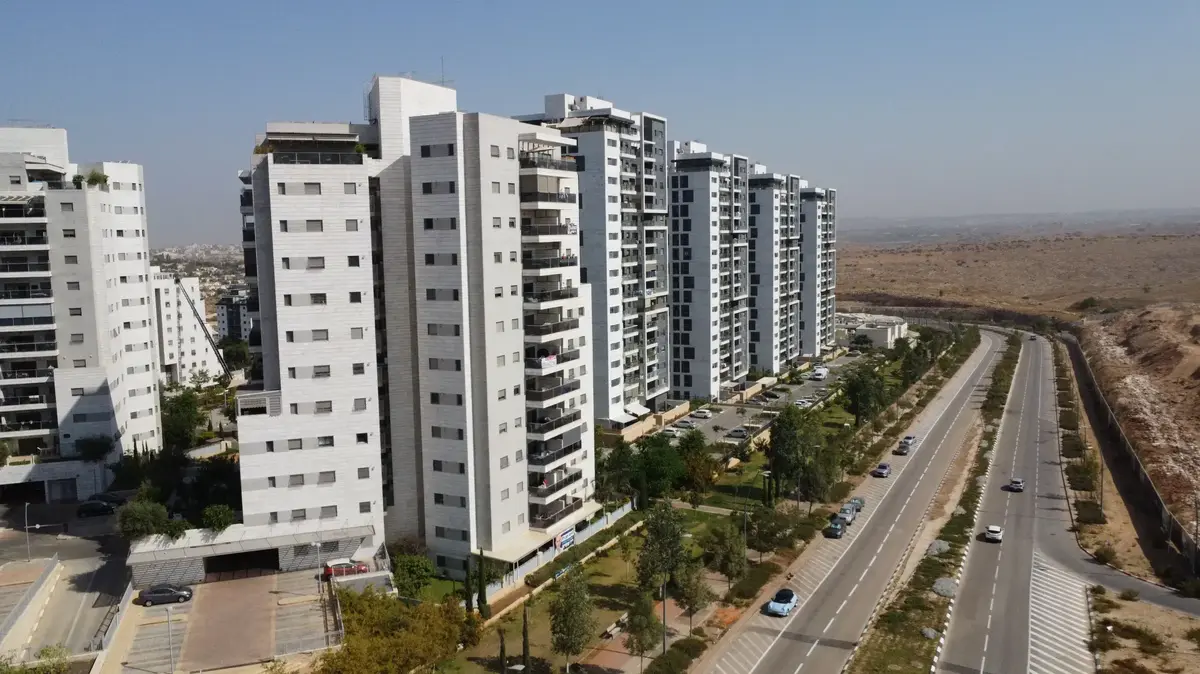Office and commercial space is vacated, rents are eroding and property values may fall
Many places have discovered the benefits of working from home
Photography:
freepik
Produced by the Department of Special Supplements
2019 was a record year for real estate companies in all areas (offices, commerce and residential). Demand for the territories recorded increases, occupancy rates above 95% and the price per square meter also climbed.
After two rounds of restrictions, the uncertainty intensifies, a dramatic slowdown is recorded and we are approaching a historic low in the volume of transactions.
The accounting firm Fahan Kana & Co., through the head of real estate, CPA Yigal Bitton, examined for today the real estate macro trends in the real estate industry in Israel.
Offices: Decreases up to 15%
The field of offices faces challenges following the economic reality created and the recognition of the benefits of work that combines home and office.
The new situation increases the fear of damaging occupancy and eroding rents.
In the short term of about 6 months the office market is still a market of landlords.
We will not feel the depth of the crisis due to contractual obligations, transition costs and also the social distance regulations.
All of these will prevent companies from reducing office space in the first phase.
In the medium term of about a year to a year and a half the trend will start to reverse and the market will become a market of tenants.
This trend is mainly supported by the fact that each year about 20% of contracts are completed according to a 5-year MHM that has been accepted so far. We will add to this the increase in construction in the Greater Tel Aviv area and the trends in the high-tech industry.
To illustrate, many technology giants, including Facebook, have announced that they will move half of their workforce to work from home within a decade.
We are all already experiencing how the corona manages to accelerate processes.
In the long run, as home work patterns take root among the high-tech sector and other firms, the declining trend in demand for office space will be fixed and will lead to NOI damage from those assets.
A survey by Maalot estimates that the damage to NOI can reach 5% to 15%, resulting in a damage of about 10% to the value of the assets.
Trading: 30% damage
The trading industry was in a negative trend even before the Corona crisis, due to the blossoming of online commerce and the Amazon effect.
The closed commercial areas were particularly affected by the virus.
Studies show about 30% damage to income from these assets and their NOI.
Residence: A light blow on the wing
A review of the real estate industry by the Chief Economist at the Ministry of Finance for the second quarter of 2020 paints a gloomy picture. The total transactions in the free market in the second quarter stood at 16,800 apartments - a decrease of 27% compared to the corresponding quarter last year.
This is the sharpest quarterly decline since the second quarter of 2014, which stood in the shadow of waiting for a zero VAT plan. Compared to the previous quarter, which only had its last third affected by the corona plague, there was a 25% decline.
The review divides the total number of acquisitions by region, where it appears that the Tel Aviv region experienced the most significant declines of more than 40% compared to the first quarter of 2020, and more than 30% compared to the corresponding quarter last year.
The declines in the volume of transactions did not miss the Haifa and Jerusalem area either.
Talk real estate with Ofer Petersburg. Listen to the new podcast >>
From the point of view of residential real estate investors, there was a significant slowdown in the second quarter of the year. Only 2,300 apartments were purchased by investors, which is the lowest level since the beginning of the previous decade at least. In investors' purchases, about 4,180 housing units, which are offset entirely and even more in their sales, about 5,800 housing units.This trend indicates investment apartments that have changed hands between investors, but overall the trend is negative.
History shows that the demand in our country is hard and the supply is low, which may cause a slowdown in the return of buyers to the market and delays in the dedication and completion of projects or in their initiation, but price levels are expected to remain high.
The housing market may get a light blow on the wing, but will recover and return quickly to the levels we are used to seeing.
Since the end of the second closure one can already see a return of buyers to the market and registrations for purchase in many projects.
Produced by the Department of Special Supplements









